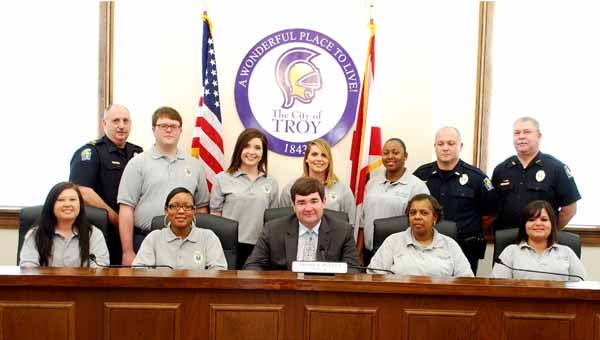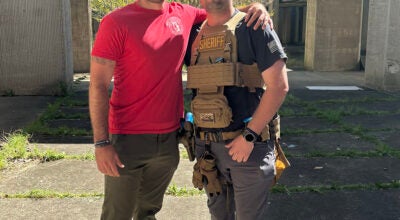Mayor proclaims April 14-20 Telecommunications Week
Published 11:00 pm Wednesday, April 10, 2013

Mayor Jason Reeves signed a proclamation recognizing April 14-20, 2013 as National Public Safety Telecommunications Week in Troy. Pictured counterclockwise from left are Kassey O’Hara, Lakiesha Knight, Mayor Jason A. Reeves, Rushia Jones, Danielle Tillery, Chief Jimmy Ennis, Lt. Bryan Weed, Marion Ivey, Elizabeth Locascio, Elizabeth Caddell, Zachary McLendon and Capt. Freddie Brooks.
Troy Mayor Jason A. Reeves signed a proclamation Wednesday in an effort to honor the 13 dispatchers who work for the City of Troy.
“These folks are the first line when something bad happens,” Reeves said. “They never close. They are always working. They mean the world to me and I’m very grateful.”
Next week is National Public Safety Telecommunications Week and the proclamation signed Wednesday shows the city’s appreciation of the local public safety telecommunicators.
“They are vital to our work as police,” said Troy Police Chief Jimmy Ennis. “They are the officers’ lifeline and a lifeline for those who need help.”
The 13 who answer round-the-clock emergency calls for the City of Troy range in experience level from one week on the job locally to 28 years.
Rushia Jones has been a public safety telecommunicator for 23 years – 11 of those working for the Troy Police Department’s third shift.
“In this job, you are really helping people,” Jones said. “No two calls are the same. You have to treat each caller and each situation individually.
Jones said that the bottom line for telecommunicators is to make situations safe for both the public and the officers responding to calls for help.
Jones said she’s answered calls for help regarding drownings, shootings and suicides. She said the job can be a stressful one, but there are moments that let her know her work is worthwhile.
“When calls you take all night long are bad, it can get you down,” Jones shared. “But then, you get that one call that is someone calling to thank you for something you did. That’s when it’s easy to remember why we do what we do.”





